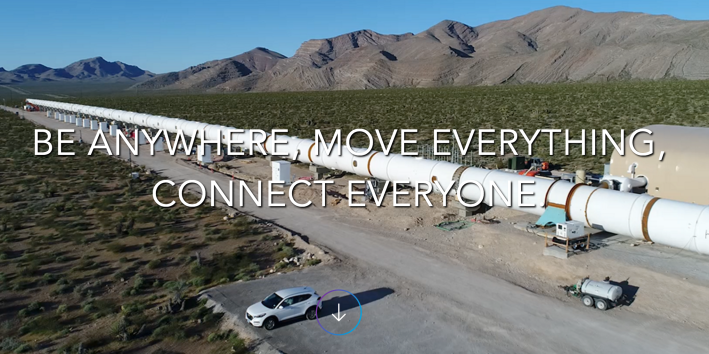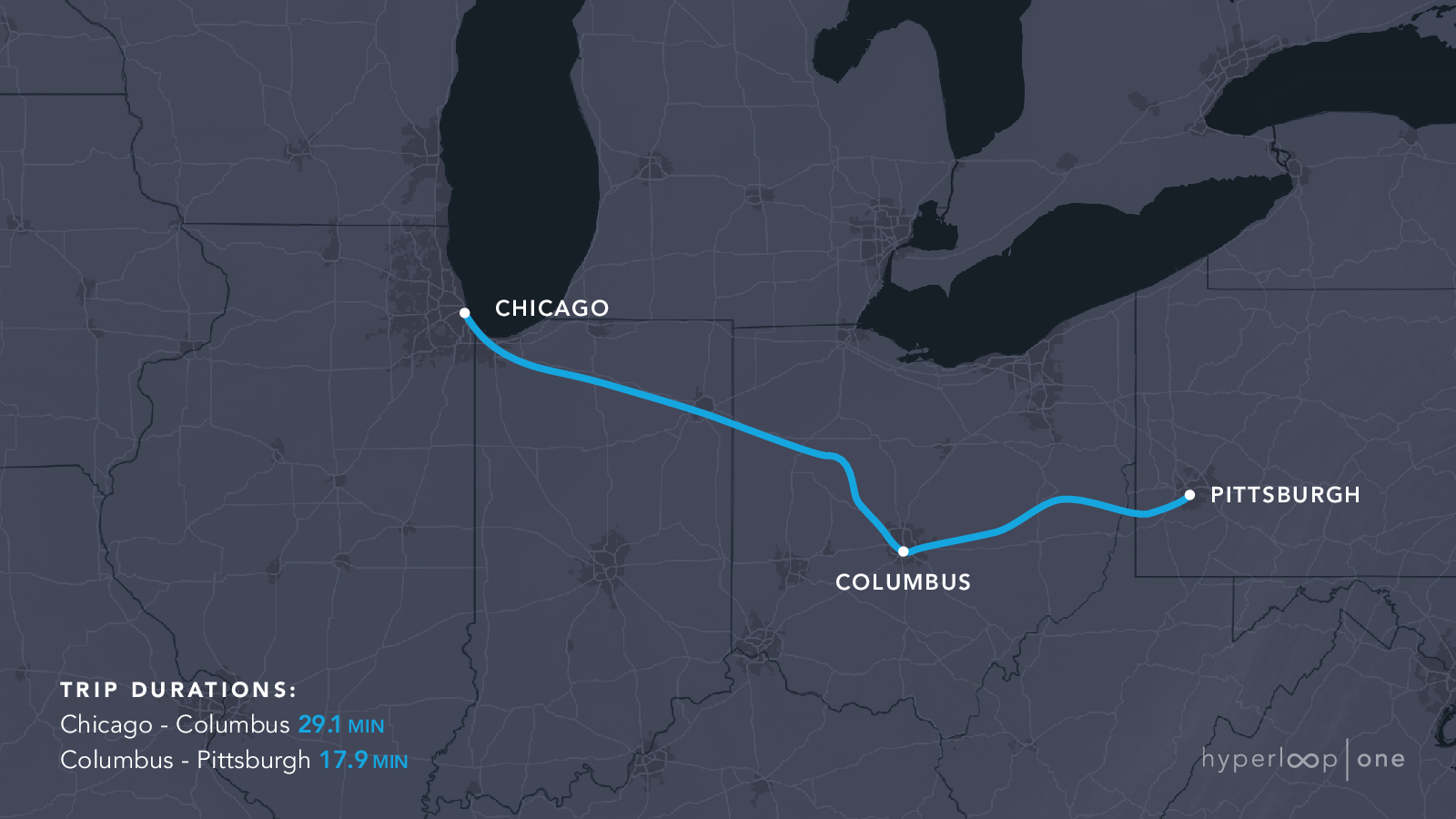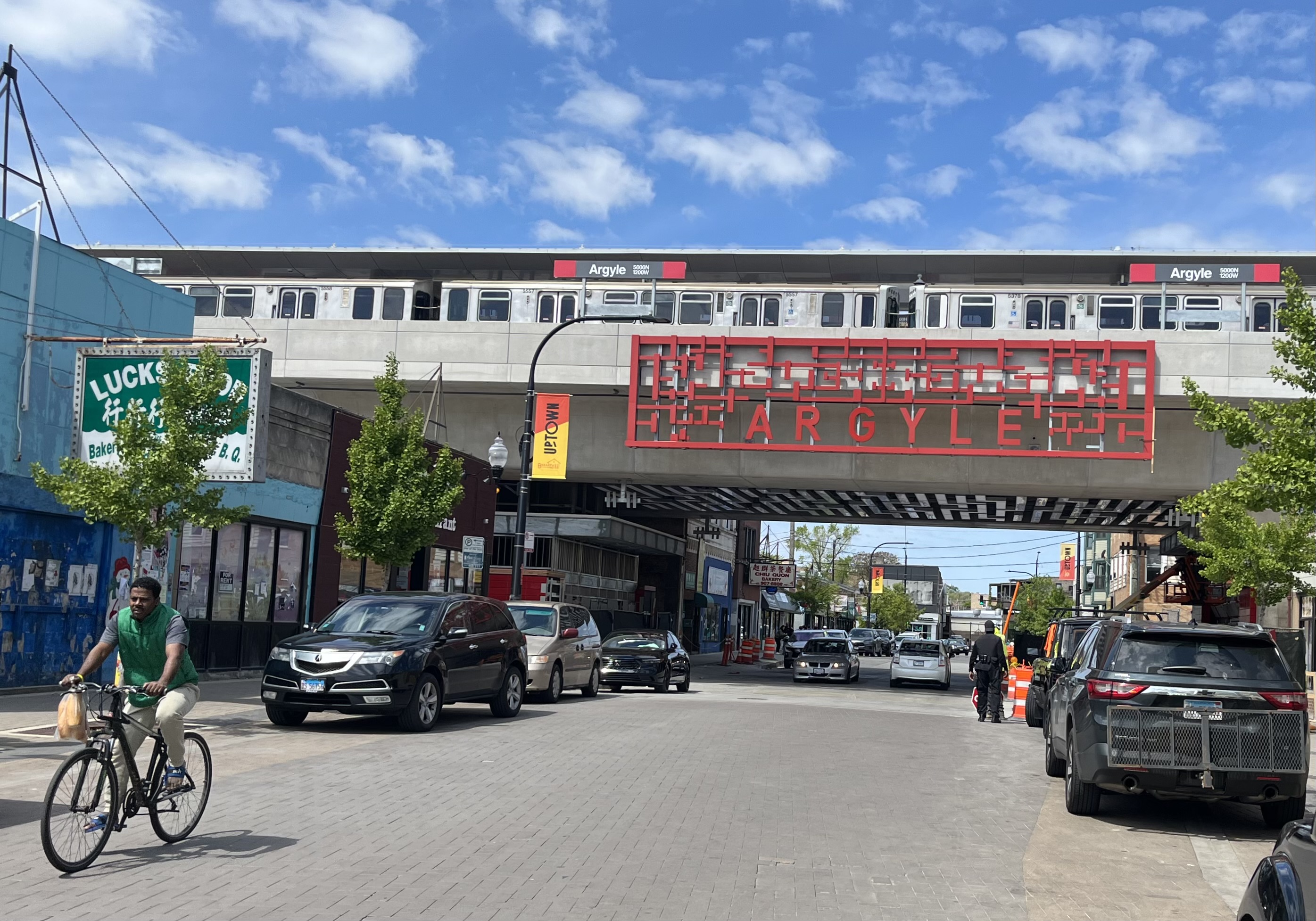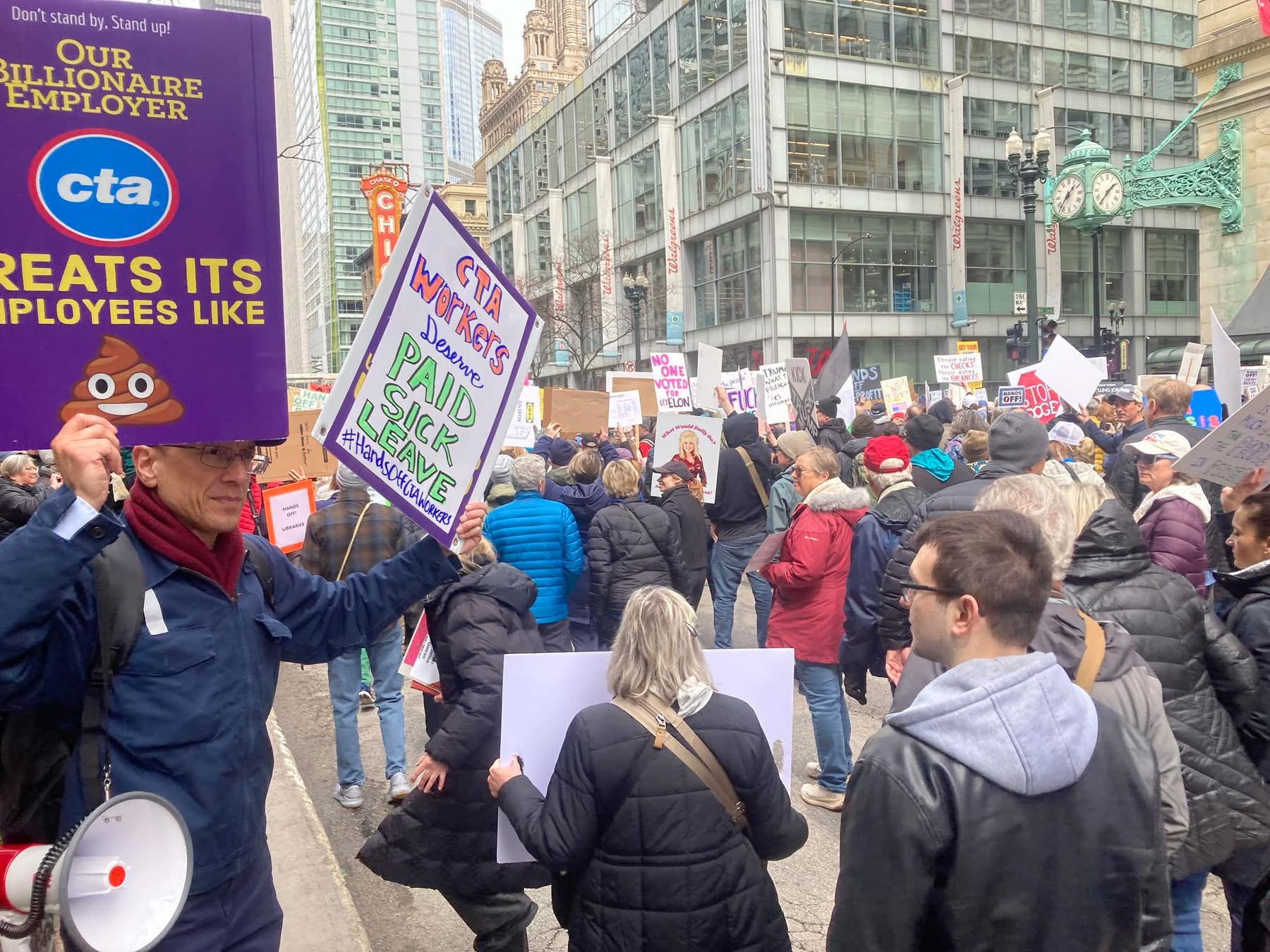Sometimes it seems like Americans will go to any extreme to avoid having to get serious about adopting sensible transportation practices that are common in other parts of the world, such as well-funded, efficient urban transit and high-speed rail. One of the most laughable examples of this line of thinking is the Hyperloop, Tesla founder Elon Musk’s scheme to shoot people through airtight tubes in special pods traveling up to 760 mph, as if we were letters in pneumatic mail tubes.
The $130 million Los Angeles-based start-up Hyperloop One announced last week that 11 U.S. teams will be working to develop routes for this hypothetical transportation system. The Midwest squad has proposed a 488-mile route from Chicago to Columbus to Pittsburg with the assumption that the trip will take a mere 47 minutes. (No word on why they’re dissing Indianapolis and Dayton, which wouldn’t be much of a detour.)
In a Hunger Games-like scenario, the 11 American teams will compete with two dozen other groups around the world, which will eventually be winnowed down to three finalists who will be tasked with financing and developing the system. Hyperloop One projects that the theoretical transportation network will be ready to roll (squirt?) by 2022. Last week Hyperloop One finished installing a 1,640-foot test tube outside of Las Vegas.

"Hyperloop One is the only company in the world building an operational commercial Hyperloop system,” Rob Lloyd, the company’s CEO said in a statement. “This disruptive technology – conceived, developed and built in the U.S. – will move passengers and cargo faster, cleaner and more efficiently. It will transform transportation as we know it and create a more connected world.”
There’s just one problem. Other than that 500-meter tube in the desert, the Hyperloop concept is essentially fairy dust. As detailed by Streetsblog USA this morning, there are no real-world, functional examples of a Hyperloop, so anyone who’s taking the project seriously is essential making a leap of faith. The startup hasn’t even built a pod to go with that pipe, let alone tried a test run with human passengers.
Yet lots of decision makers are taking the proposal seriously. As Streetsblog USA reported, MORPC, the regional planning organization for Columbus submitted an application to develop the Columbus-to-Chicago stretch, which they say can cut the travel time to a mere 29 minutes. In addition to staff time and planning resources, they’re also willing to raise money for the project:
MORPC is ready to provide support in land use, population, and transportation forecasting; overall project coordination; and financing and operations technical assistance…
MORPC will work with partners across the Midwest region to identify and engage private sector partners in an effort to attract investment in both the study and development of a Hyperloop corridor.
As Streetsblog USA noted, Musk’s white paper for a Hyperloop route from Los Angeles to San Francisco was roundly debunked by mathematics and transit expert Alon Levy. He found that that the entrepreneur stated the engineering and land acquisition costs for the project at a tenth of what they would likely cost.
So I wouldn’t plan on making a sub-hour run to Iron City for a Primanti Brothers sandwich anytime soon.





